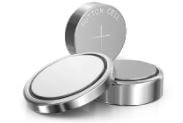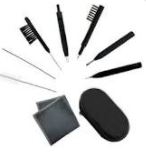Online shopping provides a quick and convenient way to purchase products, and this is especially true for the...
OTC Hearing Aids
Over-the-counter hearing aids are medical devices designed for those with mild to moderate hearing loss. They are an alternative to hearing aids prescribed by an audiologist that require a prescription and are typically several thousand dollars in price. Over-the-counter hearing aids are classified as a separate category from prescription hearing aids while still maintaining high quality to safely and effectively amplify sounds for those with per
OTC Hearing Aids
Nonprescription hearing aids are typically one size fits most. Users fit and apply them by themselves as well as adjust the settings to their preferences. Many come with a rechargeable battery and a smartphone app that allows users to adjust settings at any time. They do not require a medical exam or a prescription.
Over-the-Counter vs. Prescription
The major difference between prescription-level and off-the-shelf hearing aids is the level of care they provide for the price. Prescription hearing aids are only available from a hearing medical professional such as an audiologist. They are customized to each patient's needs in both size and level of hearing loss. Prescription hearing aids can treat all levels of hearing loss from mild to profound.
Over-the-counter hearing aids cannot cover all levels of hearing loss. Prospective users determine on their own whether their level of hearing loss could be helped by a hearing aid.
When To See an Audiologist
While an exam is not required to buy over-the-counter hearing aids, it is never a bad idea to get a professional opinion. An audiologist can help determine whether or not OTC hearing aids will help a patient. Hearing tests provide results that can help users program their nonprescription hearing aids more effectively. Audiologists also have access to other resources and information regarding hearing technologies that can help patients make a more informed choice.
In addition, those who suspect they have severe or profound hearing loss will need to see an audiologist as nonprescription aids may not be the best choice.1
Hearing Aids vs. Personal Sound Amplification Products
A hearing aid fits in the ear canal and amplifies sounds to compensate for hearing loss. Typically, users can program them to amplify certain frequencies (high vs. low). They are classified as medical devices and regulated by the Federal Drug Administration (FDA).
A personal sound amplification product (PSAP) is a wearable electronic device that amplifies sounds on all frequencies. It is not intended to make up for a loss of hearing.2Vitality Medical carries a robust selection of Personal Sound Amplifiers.
Frequently Asked Questions (FAQs)
Will over-the-counter hearing aids work for those with severe hearing loss?
Over-the-counter hearing aids are not meant for those with more severe or significant difficulty hearing. They may not be able to amplify sounds to a high enough level.3
Can these be used by children?
No. Over-the-counter hearing aids are sized to fit most adults and not children.
Do over-the-counter hearing aids for sale filter out background noise?
Yes.
Footnotes and References
- Everett, Cara, MS, RDN. Over-the-Counter (OTC) Hearing Aids--What to Know. National Council On Aging, 1 Feb. 2023. Accessed 7 Mar. 2023.
- Hipp, Deb. Ruffin, Chad, MD. What Are PSAPs And How Do They Differ From Hearing Aids? Forbes Health, 16 Feb. 2023. Accessed 7 Mar. 2023.
- Over-the-Counter Hearing Aids. National Institute on Deaf and Other Communication Disorders, 16 Aug. 2022. Accessed 7 Mar. 2023.



Login and Registration Form